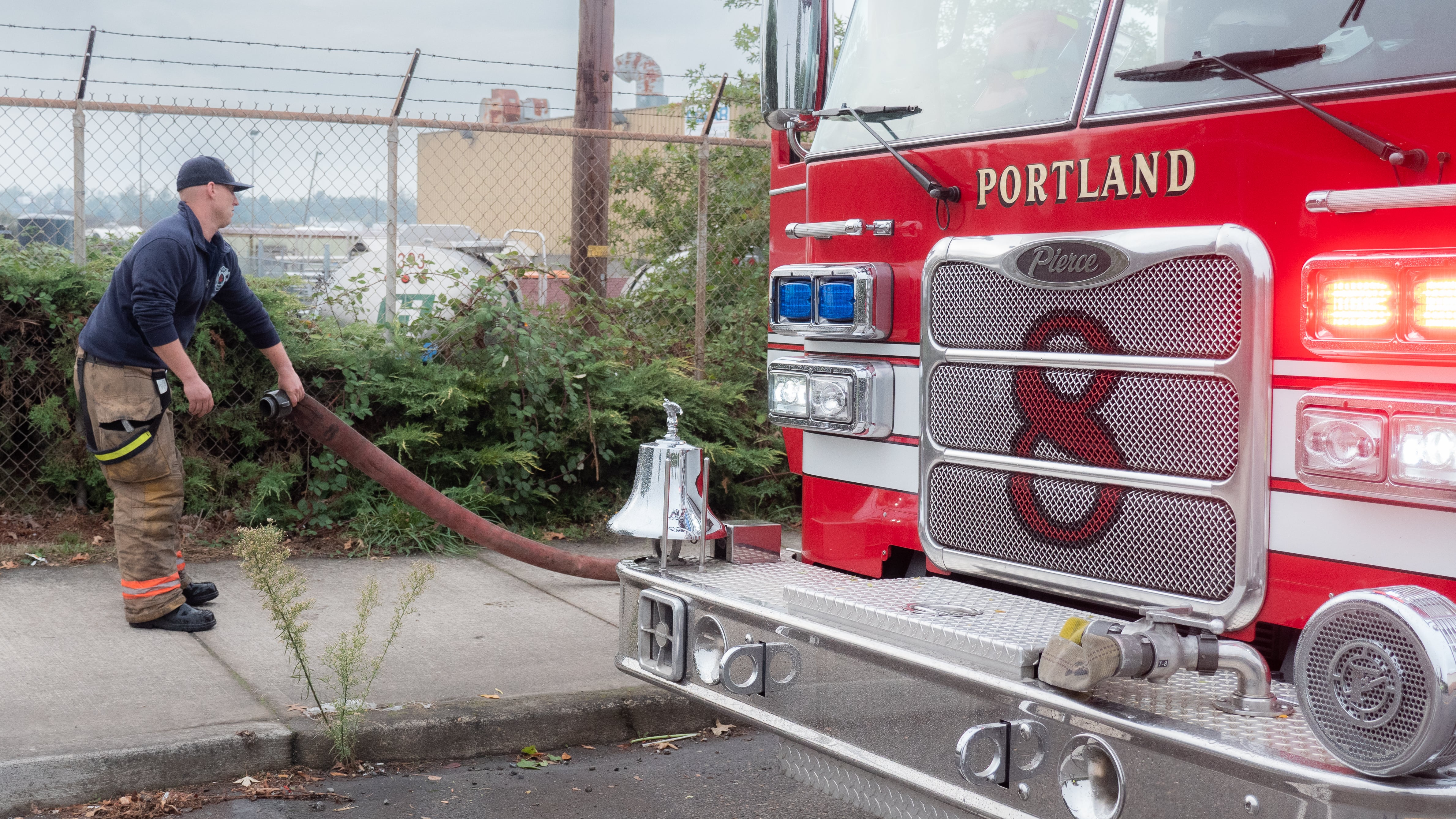SUBJECT: Houseless Camp-Related Fire and Public Public Safety Issues on the N. Going St. Corridor
FROM: Capt. Brian Cummings, Fire Station 24
TO: Street Services Coordination Center
DATE: Feb. 28, 2023
In a memo penned last winter but not previously reported, a Portland fire captain pleaded with city officials to ban camping in the wooded hillsides along a notorious stretch of a North Portland street. In the Feb. 28 memo, Fire Station 24 Capt. Brian Cummings warned that sprawling encampments, hidden on the bluffs along North Going Street, had become so dangerous that firefighters could not enter without a police escort—which, due to short staffing, was often unavailable.
Fires at homeless encampments have consumed the workload of Portland’s firefighters during the pandemic. As WW has previously reported, they accounted for nearly half of the calls to Portland Fire & Rescue last year (“Camp Fires Everywhere,” Nov. 2, 2022). The memo is another indication of the intensity of frustration that firefighters feel about the growth of outdoor encampments, and their dissatisfaction with the city’s response.
Cummings wrote that firefighters had been called to North Going Street and Interstate Avenue 744 times in the past two years. On 22 of those occasions, firefighters considered the camp dangerous enough to request that the city sweep it, “the highest for any camp citywide,” the memo notes.
The situation along Going Street, Cummings says, is not only dangerous to the encampments’ residents, but also the entire neighborhood. “This high number of dispatches to these locations due to these camps undoubtedly affects Station 24′s response reliability,” he noted.
Making the site more troublesome is its geography. On the south edge of Going, campers had “terraced” into the forested hillside, Cummings wrote. By that, a recent visit to the site by WW suggests, he meant digging into the hill and using wooden pallets to construct cantilevered dwellings amid the trees.
What happened in the woods was ugly. Among the outrages witnessed by firefighters and itemized by Cummings: unhoused campers killed by drugs, heat and speeding cars; attack dogs sicced on firefighters by campers; a series of shootings at an “obvious chop shop”; a string of arsons at Madrona Park on the western end of the corridor; and campers openly smoking fentanyl along a route that children walk to reach nearby Beech Elementary.
“This camp offers a front-row seat to the fentanyl and methamphetamine crisis,” Cummings writes. “While we are sensitive to the needs of our houseless community, this area has been extremely challenging from a public safety standpoint and has proven time and again to be an unsafe and inappropriate area for folks to live.”
Fires at homeless encampments have already shaped city policy. In February, a few weeks before Cummings sent his memo, newly elected City Commissioner Rene Gonzalez banned the distribution of tents by the Portland Fire Bureau and its mental health unit, Portland Street Response. Last month, the Portland City Council passed an ordinance that makes daytime camping, and fires and gas stoves at night, punishable with jail time.
Although Cummings’ request to ban camping along North Going Street has not been granted, his memo illustrates the public safety issues policymakers are attempting to address.
A spokesperson for the Street Services Coordination Center, which manages camp sweeps, tells WW the city was already aware of problems in the corridor before receiving the memo and had “cleaned the area on a regular basis.” It is continuing to do so.
On a recent visit to Going Street, a patrol officer told WW, “There’s people all through there up and down the street.” A woman walking her dog and collecting cans, however, said she was unaware of anyone living in the hills. “That would be pretty cool, though,” she added.

